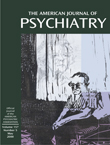This is a very well-written book by distinguished authors; its primary value will be as a primer for mental health clinicians interested in providing genetic counseling based on currently established knowledge to patients and families. The scientific emphasis is on diagnostic genetic epidemiology and prediction of risk by using multifactorial inheritance. The clinical emphasis is on the counseling situation in which the key question is risk to yet-unborn offspring. The book also excels in considering ethical and legal issues related to clinical genetics in psychiatry at the present time and in the future if and when diagnostic tests become available.
Other scientific topics, such as mathematical models of inheritance and molecular genetics in psychiatry, are reviewed in a manner that will be most useful to the intelligent mental health professional or student with little scientific background in these areas. The reader addressed appears to be one who is more interested in what findings these disciplines might eventually reveal and less interested in entering into the intellectual and scientific excitement of the current period, including the controversies surrounding different experimental approaches being taken to generate the expected findings. To me, it seems that many topics were rejected for inclusion because they have not yet reached a conclusive and clinically applicable outcome. The value of this approach is that the text is very accurate and correct and can be relied on. Also, current scientific controversies about difficult-to-comprehend scientific issues may not actually add to the clinical application of established knowledge. The disadvantage is that the reader is not given a critical sense of the current scientific literature and will not be well informed enough to respond intelligently to emerging scientific findings, such as the next time a gene for schizophrenia or for a personality variant is trumpeted in the popular press.
The discussion of Alzheimer’s disease, including discussion of the apolipoprotein gene variant APOE4, a widespread gene that increases susceptibility to Alzheimer’s disease, is illustrative. There are three rare single-locus mutations that independently cause Alzheimer’s disease in an infinitesimally small proportion of cases; and there is the APOE4 variant, which greatly increases risk and is epidemiologically much more common (found in one-fifth of Caucasians). APOE4 can be considered part of a multifactorial causative process for the common form of Alzheimer’s disease. In discussing the clinical applicability of APOE4 testing, the authors quote the American Society of Human Genetics, which does not recommend testing, and state that there is no compelling evidence supporting its routine use until more clinical research is completed. Now, the association between APOE4 and Alzheimer’s disease is arguably the most replicated genetic finding in inherited common diseases; the research that is needed is on whether the test results can be disclosed in a manner that can be useful to the patient. This is not clear from the authors’ discussion, however. They go on in the next section to a most informed discussion of how presymptomatic tests might be used in other psychiatric disorders with similar inheritance, but somehow the reader is not made aware of how close current knowledge of APOE4 is to their own criteria for a clinically applicable genetic test. Nonetheless, if this or another well-grounded finding comes under public consideration for use as a clinical predictive test, the reader of this book will have learned the principles needed to form his or her own judgment on whether the test should be used.

